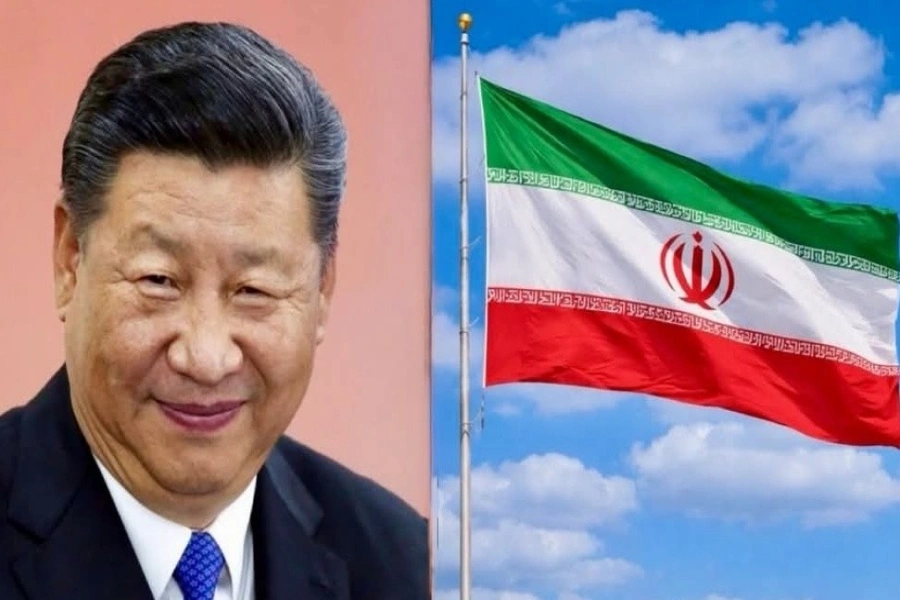The government should stop vacillating and go for devolving powers to provincial and local levels with due urgency
It is a mere cliché to mention that less than a year after the current government was formed with much fanfare, we are witnessing a profound crisis of governance. It is as if the system is malfunctioning dangerously. The semblance of order that was supposed to accompany the formation of government is nowhere in sight. The breakdown in decision-making is so advanced that it forced the all-powerful Prime Minister K P Oli to condemn his own government’s inaction with indignation and go for evaluation process.
Reflecting on the last nine months of this government, it is easy to see through its many failures. Nirmala Panta’s rape and murder case almost rocked the nation and forced even the most ardent sympathizers to criticize the government. We have seen failures of the government to tame transport syndicate, make promised amendment of the constitution, strikes by doctors, teachers etc. This apart, Oli is besieged by a bitter power struggle in his own party.
Rulers and the ruled
At the heart of this struggle lie the changing power relations between the ruler and the ruled. The struggle is between those who try to prop up and preserve the old order, the traditional power holders like most politicians, businessmen and bureaucrats and those who are ready to advance beyond it, such as civil right activists, feminists and people engaged in production and dissemination of information. While the traditionalists are dedicated to preserving the decayed and dying system, such as the centralized nation-state and politics of pseudo-representative government, they seem deeply dismayed by the inadequacies of the traditional worldview. Though this camp still commands the support of the most ordinary citizens, there is a fast spreading pessimism and disillusionment in their rank.
The modernists, on the other hand, who favor fundamental devolution of power comes across as more agile and creative lot. They seem to be enjoying the challenges they are posing in the form of street protests or through creative imageries and slogans that find resonance with the masses. Feeling boxed, traditionalists can only carp, threaten vengefully and occasionally act with iron-fist which further erodes their legitimacy. The latest salvo being fired from the high office of PM at intellectuals and media threatening them with dire consequences when being poked for its failures is a case in point.
Dugar Power and Tata Power Renewable Energy join hand to boost...

However, to say that all traditionalists belong to a particular party and all modernists to the other party is a wrong way to paint the picture. The super-struggle between the two camps cut like a jagged line across class and party, across age and ethnic groups. For instance, we have heard Gagan Thapa and Ghanshyam Bhusal voicing concerns against the excesses of their senior leaders. Similarly, we have seen younger members of RJP-N express frustration against the members of presidium for their failure to hold general convention.
What is responsible for such disorder? Samuel Huntington attributes such instability to rapid social change and mobilization of new groups into politics coupled with the slow development of political institutions. “If men are to remain civilized or become so”, Alexis de Tocqueville observed, “the art of associating together must grow and improve in the same ratio in which the equality of conditions is increased.” Social and economic changes resulting from globalization has extended political consciousness, multiplied political demands and broadened political participation. These changes undermine traditional source of political authority and institutions.
Correcting measures
There are no easy solutions, at least not in the short run. Coping with the fast changes requires change in mindset as well as overhauling bureaucratic system through which the government can exercise power. However, in short run the government can start with surprising people by acting with magnanimity on some of the most contentious issues, such as going for the promised amendment of the constitution, though settling provincial boundary issue will be a bone of contention.
Criticism may still emanate from some corner calling it bowing down to public pressure but it will put government on a higher pedestal and send positive vibes. National unity is far too important a goal to be put on peril for the sake of vested interests. This will also allow the beleaguered government to buy some time to set its direction.
Second, the government should stop vacillating and go for devolving powers to provincial and local levels with due urgency. Despite having government at three levels, there is hardly a semblance of governance. This will help settle most problems at the level where it belongs. For example, Nirmala’s rape and murder would have been a provincial subject if the law and order had been under its control. This will also help to contain regional political elites by allowing them to focus on their own problems.
We are witnessing one giant individual on a mission to save the country. Each time he bumbles, his stature is reduced. A wily politician, K P Oli should realize risks are best hedged by sharing. The political system through which he is operating is so antiquated and creaky, so outraced by events that it puts a severe constraint on even a well-intentioned action.
Often we have seen this government inviting criticism where there should have been none. The needless ostentation in case of the advertisement of social security program where Oli’s image protruded from every newspaper jacket as well as streets of Kathmandu like Big Brother straight from George Orwell’s 1984 was totally uncalled for. So was the pomp and circus on display as the State splurged on NGO conference.
Rarely do we see profit organizations biting the hands that feed it with greater gusto than was on display when most media houses criticized the government in unison for its vanity projects despite pocketing good advertisement revenue from it. Frittering away political capital on such inconsequential issues shows the lack of connect with people.
Power to people
We are witnessing Nepali people’s insatiable desire for protests and standing up to the power notwithstanding who is in the government. Since Janandolan 2 to oust Gyanendra Shah out of power, protests have been a normal part of public life. The romance for revolution is so strong that people are refusing to be intimidated by empty threats. For instance, we have seen how the opposition parties and civil society members came together when the government issued Maitighar Mandala as a “no protest zone”. The power is so centralized at Office of the Prime Minister and Council of Minister (OPMCM) and the opposition so enfeeble that street protest and media trial are the only dynamic alternative to the government’s inaction.
While intellectuals and media maintain they are simply trying to balance the power, government and its sympathizers see something more insidious: An attempt to hamstring the democratically elected leaders thereby subverting the will of the people.
Though protests are certainly a legitimate means to showcase one’s discontents, it is also important to draw line. It is giving rise to semi-anarchy like situation where ordinary people are growing bitterly cynical about their own representatives. Popular passions and rage can never in itself constitute sustainable politics. Those who try to benefit by exploiting it eventually find themselves in a sticky situation. Current dispensation exemplifies it perfectly.
The author is a lecturer based in Rajbiraj.
Tweeter: @manjeetmishra82






































